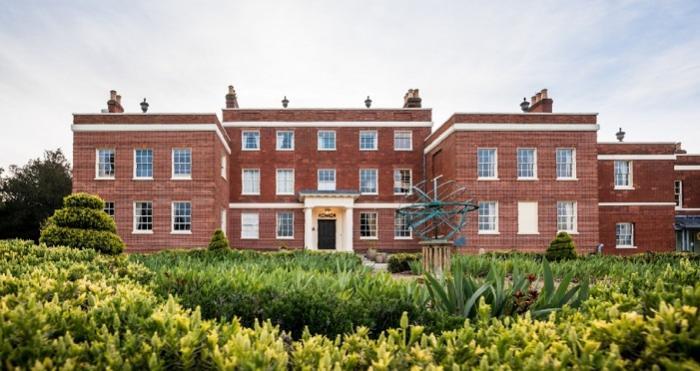‘The Hinxton Hall Estate: Georgians, Jet Engines, and Genes’ begins on 15 September 2021, with further online talks in October and November, leading up to an exhibition in the Hall itself in early 2022. Each talk will include a film screening, a panel discussion with local experts and an audience Q&A. The first talk will be part of a programme of events for Heritage Open Days and the University of Cambridge’s Open Cambridge.
Registration and programme details of the talks are available at the Wellcome Connecting Science Genome Gallery website1.
Beth Elliott, the curator of the online exhibition from Wellcome Connecting Science, said: “As with all journeys through history, it is only when we start to look that we realise how much more there is to find. We have really enjoyed getting to know some of the people who lived and worked in this fascinating place, their day-to-day lives, as well as the extraordinary events and achievements that shaped them. We plan to build on this work, and continue to collect people’s memories, stories and contributions associated with the Hall. We look forward to welcoming visitors to the online programme this autumn, and exhibition within the Hall in 2022.”
‘Hinxton Hall: Hidden Heritage and Home Grown Veg’ is the first online talk and will take place on 15 September 2021. Historians Helen Carr and Twigs Way, along with Max Brown from the Sanger Institute’s Tree of Life programme, will explore the role of the Hall as the centre of the local community from the mid-nineteenth century, its estate and gardens, and how part of Pompeii ended up in its parlour.
The second talk will focus on the Hall’s role as a hub for innovation and research collaboration in the post-war period, after it was acquired by the firm Tube Investments in 1953. In this period, cutting edge imaging and materials science research was conducted in former maid’s bedrooms and butler’s pantries.
The third and final talk will recount the Hall’s recent history as the first home of the ground-breaking research institute that led the UK’s contribution to the Human Genome Project, all the way up to the present. Director of the Wellcome Sanger Institute, Professor Sir Mike Stratton, will join Sir Jeremy Farrar, Director of Wellcome, and members of the Covid-19 Genomics UK (COG-UK) consortium, to discuss the impact genomics has made on our understanding of health, and how we create the spaces that support this science.
Professor Julian Rayner, Director of Wellcome Connecting Science and host of two of the talks, said: “As one of the sites where the Human Genome Project was completed, the Hinxton Hall Estate has a famous recent history. But it’s been fascinating to discover more about the site’s earlier uses, from a science and manufacturing hub in the post-war period all the way back to its original purpose as a fishing retreat in 1736. This series of talks and exhibition celebrates the Hall in all its guises over almost three centuries.”
1To register and find out more, please visit: https://genome.gallery/event/hinxton-hall-hidden-heritage-and-home-grown-veg/
Programme details
Hinxton Hall: Hidden Heritage and Home Grown Veg
15 September 2021, 18.00-19.30, Online
Join historians Helen Carr and Twigs Way, along with Max Brown from the Sanger Institute’s Tree of Life programme, for an online talk, as we explore the role of the Hall as part of the local community, its estate and gardens, and how part of Pompeii ended up in its parlour!
Part of Heritage Open Days week and Open Cambridge week
Hinxton Hall: Engineering our Future
20 October 2021, 18.00-19.30, Online
Hinxton Hall formed a key part of the UK’s post WWII recovery. In 1953 Tube Investments sought sites for innovation and cutting-edge research, and Hinxton Hall was chosen for its proximity to Cambridge as a location for the next phase of science and manufacturing developments. Join former Tube Investments researcher David Melford and the University of Cambridge’s Tim Minshall to find out about this ground-breaking work.
Hinxton Hall: DNA and Discovery
24 November 2021, 18.00-19.30, Online
Explore Hinxton Hall’s role in ground-breaking research as the home of the Sanger Centre, and the Human Genome Project with Sanger’s Professor Sir Mike Stratton and Dr Cordelia Langford. From global health, to DNA sequencing’s vital role in the battle against Covid-19, find out this site is at the forefront of science.
Image: Hinxton Hall, copyright Ben Gilbert
